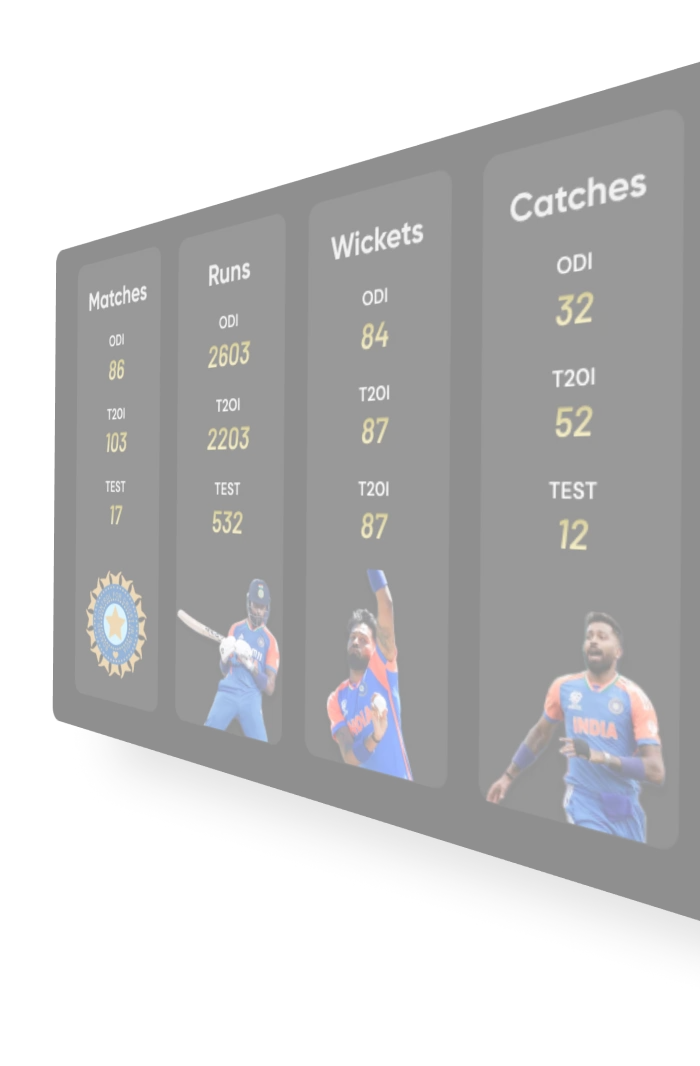
Table Of Contents
The tragic evening of 4th June was meant to be an awaited celebration for Bengaluru. After 17 seasons of waiting and praying, RCB finally lifted their maiden IPL title, defeating Punjab Kings. The moment was euphoric, thousands of fans waiting at the Chinnaswamy Stadium for the victory parade and facilitation event. What was unexpected was the chaotic and fatal crush that unfolded around 3:25 pm near Gate No. 7. The eyewitnesses and the commission’s findings revealed the cause of this dire situation. The last-minute announcement of the distribution of “free passes” for the event, coupled with confusing information, led to an unmanageable crowd outside the stadium.
Estimatively, over 3 Lakh people showed up at the Chinnaswamy Stadium, almost ten times the actual stadium capacity. The design flaws, narrow exit and entry points, and inadequate crowd holding at the stadium intensified the crisis. The D’Cunha report specifically noted that only 79 police officers were appointed in the stadium, and none outside the stadium, despite the massive turnout of fans. There were no ambulances, senior officials, including the Police Commissioner B. Dayananda (at the time), who were informed hours after the stampede began. The situation got out of control as the crowd feared being denied entry without the passes. Moving forward, overwhelming the security, the desperate crowd led to a deadly crush. Tragically, 11 individuals, women and children, mainly lost their lives, and over 50 sustained injuries. Despite the unsolicited disaster, reports indicated that the celebrations continued for the time being, and officials claim it was to avoid any further chaos with an abrupt decision.
The Karnataka cabinet formally accepted the report by Justice D’Cuhna and moved smoothly to legal proceedings. With both civil and criminal avenues, the proceedings were pursued against the key individuals from RCB, KSCA, and DNA Entertainment Networks.
The specific names include:
Subsequently, Departmental inquiries were launched against five suspended police officers, including former Bengaluru Police Commissioner B. Dayananda, former IGP and ADGP, former DCP (Centre), former Cubbon Park Sub-Division ACP, and former Cubbon Park Inspector.
However, the path to accountability is already full of legal challenges. DNA Entertainment Networks filed a petition against the D’Cuhna commission report, alleging procedural lapses, bias, and a lack of witness cross-examination. The firm contends that the tragedy was due to the failure of state authorities in managing the crowd outside the stadium. The petition also highlights that the report was allegedly leaked to the press before being provided to the concerned parties.

Chinnaswamy Stampede: Central Administrative Tribunal Holds RCB Responsible

RCB Pacer Yash Dayal Faces Serious Allegations in Sexual Harassment Case

After IPL 2025 Win, Will RCB be Sold? Diageo Responds to Sale Rumours
Bengaluru has embarked on its journey to become an international sports hub with the Karnataka government announcing the construction of a massive sports complex. Deputy Chief Minister D.K. Shivakumar shared that the government will construct a stadium that could host more than 60,000 spectators, more than double the capacity of the existing Chinnaswamy stadium. The idea is to bring together an all-sports-inclusive complex, with security standards, and allowing a capacity for large gatherings.
Although the announcement was made after the unfortunate stampede, the project has been on the negotiating table for quite a while. Almost 50 acres of land have been set out for the construction near Mavallipura in the Dr. K. Shivaram Karanth Layout. The project, by adding this new complex, will, of course, fulfill the long-diving need for a sports complex at the site, is a beacon of hope for Bengaluru's sports future, and is bound to be a safe and resourceful infrastructure for holding large events.
The withdrawal of Chinnaswamy from the list of venues for major events challenges Royal Challengers Bengaluru. The loss of the traditional home ground becomes the biggest disadvantage in IPL 2026. The team will no longer have the same vibe and undivided loyalty from the fans as the Bengaluru people give. The team will have to choose another home ground, which must be done strategically and logistically.
In reaction to the Chinnaswamy calamity, the Board of Control for Cricket in India (BCCI) has also inclined towards executing robust rules for post-IPL festivities and victory parades. The brand-new protocol necessitates the previous BCCI approval for public events. It contains multi-tiered security and exhaustive licenses from district police, state governments, and local authorities. The goal is to avoid such catastrophic occurrences and to make sure that the public is safe during the celebratory events.
The Chinnaswamy Stadium 4th June incident, a stampede, is a case of the importance of crowd management, better infrastructure, and intense planning for such large gatherings. The new sports complex in the Garden City and the lessons learned from this tragic incident will be the ones that will decide the future of sports event management.
A striking balance between passionate fans and safety!!






More Links